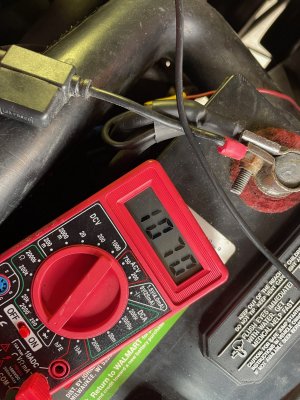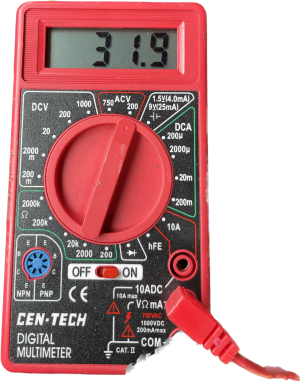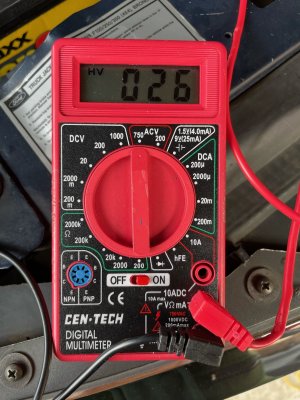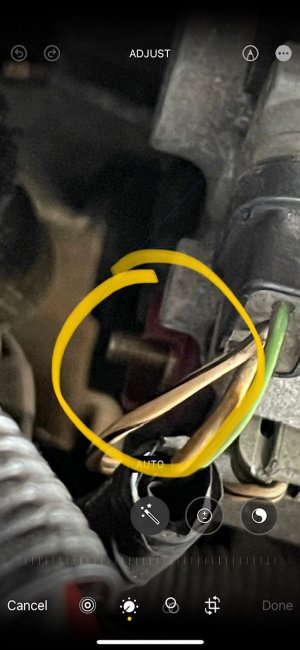How did you check the alternator?UPDATE today I checked the battery all is ok, checked the alternator (fully disconnected from all sources) the DVOM reads 1069 VAC, is this borderline bad/good? I will continue to check the VSS cable for any ruptures kinks etc... I have not driven the truck as of all this.
Lou
If you unhook the alternator, put a test light between the large battery wire and were the wire attaches on the alternator. If the test light lights up you have a bad diode in the alternator.
But usually that will drain the battery in a couple days.




